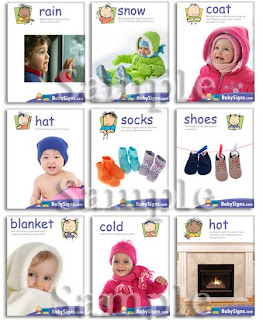
I’m taking time out from talking about the Baby Signs® Program to share some fun information from the 2nd book I co-authored with Dr. Susan Goodwyn, Baby Minds: Brain-Building Games Your Baby Will Love.”
One of the milestones parents of young children watch for is the development of the ability to count. Characters like Sesame Street’s “the Count” with his Dracula-like persona help the process along, as do thousands of number-focused picture books. To most parents the process seems simple. All children need to do is memorize the order of the number names and “Voila!” counting can be checked off the developmental “to do” list.
Researchers who study the seeds of mathematics, however, know it’s not nearly that simple—that the ability to count represents significant intellectual progress. In reality, it turns out, children need to understand 6 basic rules about how those number names work. Here’s a list of the principles that underlie the “simple” task of counting:
1. The Standard Set Principle: The number names must be memorized in a precise order with none left out.
2. The Stable Order Principle: When counting a set of things, start with the first word of your memorized list and always assign the labels in exactly the same order each time you use the list.
3.The One-One Principle: A different label must be applied to each and every entity. Once you’ve used a specific label, it cannot be used again within the same activity.
4.The Flexible Application Principle: The number names can be applied to any set of entities you desire, be they tangible or intangible (e.g., object or ideas), identical or different (all hats or different objects), regardless of the fact that the entities already have unique names (e.g., in counting, a hat can both be labeled “a hat,” and “#4”).
5.The Application-Order Irrelevance Principle: When applying the words to a set of entities, it doesn’t matter with which entity you choose to start.
6.The Cardinality Principle: The word applied to the last entity in the string represents the quantity of the set. If the last number applied was “10,” there are 10 things in the set.
You can see children struggling with some of these rules along the way to full understanding.
• A child who counts “1,2,3,5,7,15” doesn’t have the Standard Set Principle down yet.
• A child who counts “1, 2, 3, 3, 4…” doesn’t have the One-One Principle down yet.
• A child who counts 1,2,3,4,5…I have 20-teen!” doesn’t have the Cardinality Principle down yet.
• And a child who will only count things that are the same (all hats, all cats, etc.) doesn’t have the Flexible Application Principle down yet.
So, the next time you hear a young child correctly counting cookies on a plate, view his/her success with even more enthusiasm and a silent or not so silent, “You’ve come a long way, Baby!”
Happy Signing (and don’t forget to follow us on Facebook)!
Linda
Linda Acredolo, Ph.D.
Co-Founder, the Baby Signs® Program
and
Professor Emeritus, UC Davis

